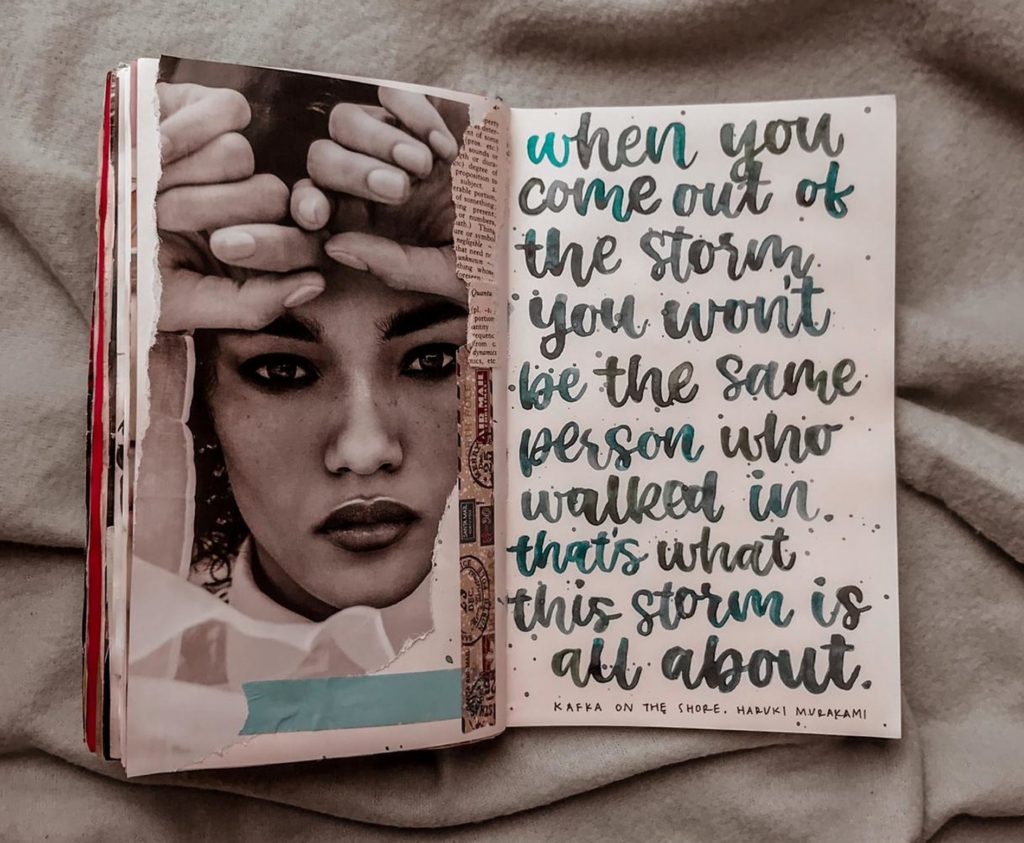Scene 1: Christmas Day 2003
I love Christmas! I love the decorations and the idea of family getting together and celebrating (notice I said, “the idea.”). Even spending most of my life in Southern California where instead of a white Christmas we had sun and palm trees, I still loved the festive air of the holidays. Ironically, Christmas has also, on occasion, been a time of sorrow and disappointment. And that is exactly what happened on a very, very rainy Christmas day 2003.
You see, my husband and I were celebrating the first Christmas of our first born! Baby’s First Christmas ~ how exciting! Our little boy was such a huge joy in our lives. Even though he was born prematurely, and was just a tiny little thing, he was already showing signs of a happy and bright personality. And I couldn’t wait to host Christmas for all of the family in our home. After cooking and decorating for days I was ready! I had a huge Italian buffet all laid out. The tree and the house were beautiful and our sweet baby was ready to charm with his new smiling skills!
The rain, however, proved to be an impediment for our family members. It was just coming down too hard for them to drive to our house – even for those who were only coming from across town. I was devastated! I found myself sitting on my bed and crying with disappointment. My poor husband eventually consoled me and we had our own quiet Christmas, just the three of us. But, I still felt very let down. In my mind, I just kept thinking, “it’s just rain, people drive in the snow in other parts of the country all of the time.”
Christmas definitely did not go according to plan!
Scene 2: January 2001
My friend Marianne (this is a pseudonym to protect her privacy) are taking a long walk and getting caught-up after not seeing each other for over a year. Marianne is one of my closest friends from graduate school. And because neither of us connected well with many of our graduate school peers we had become very close. Two summers prior she married and moved across the country to start a new life with her husband.
I had the privilege of being able to have a year-long teaching assignment in the same city where Marianne and her husband lived. They graciously offered me a place to stay while I was working there. I was absolutely delighted to reconnect with my friend and have the chance to have the deep, sister-type talks we used to have.
It turns out that Marrianne’s life, while wonderful overall, was not going according to her plans. She was happily married and she had a job she loved in a city that she enjoyed living in. She and her husband had recently purchased their first home and they were seemingly, “living The American Dream.” However, she had recently suffered a miscarriage.
As we walked and talked she described the grief of losing a pregnancy that was very much planned and wanted. She talked about how she tried to soothe herself through telling herself that science shows us that miscarriages are usually due to the fetus not being genetically healthy. But, that did little good to comfort her. She also expressed her frustration about how she had a life plan: She wanted to have her degrees done by a certain age; she wanted her career to be going well by a certain age; she wanted to be married by a certain age; and, she wanted to have her first child by a certain age.
Everything was going according to plan, until the miscarriage. She expressed that she felt like a failure for not meeting her self-imposed deadline.
THE PRESSURE OF OUR SO-CALLED PLANS
The pressure humans put on ourselves with our so-called plans is absolutely bonkers!
We judge our success based on if we’ve met self-imposed milestones. Likewise, we feel like failures when we don’t achieve those milestones irrespective of those reasons. This is exemplified in Scene 1 when Marianne was feeling like a failure for not having her first child by her self-imposed age milestone.
We also judge our worth based on whether or not other people go along with our plans. I questioned my worth when my family did not drive through the rain to celebrate my son’s first Christmas. In my mind they didn’t think I was worth it.
What we are actually “failing” to do is to give ourselves grace. We are failing to accept that we cannot control life. And, we most certainly cannot control other people!
Marianne could not control what happened to her fetus. She did not know if there was in fact a genetic disorder or malformation. She also did not know if it was her body that rejected the pregnancy. And because of this lack of control she was in no way a failure. Had she given herself grace about her life-timeline she could have saved herself some of the grief and much of the frustration she felt at that time.
Likewise, if I had been willing to see that my family not coming for Christmas was merely about bad weather, and not about rejecting me, I would have saved myself the tremendous sorrow of that day. And, I would have saved myself what proved to be another point of resentment I was holding towards my family.
RELATED POST: FROM CHAOS TO PEACE – PRINCIPLES, NOT RULES
ACCEPTING LIFE AS IT COMES
In her book, Living Beautifully With Uncertainty and Change, Pema Chodron says, “rather than being disheartened by the ambiguity, the uncertainty in life, what if we accepted it and relaxed into it?” She urges us to say to ourselves, “yes, this is what it is. This is what it means to be human.”
She encourages us to ask, “What if we decided to sit down and enjoy the ride?”
In what I call the “daily life” scenarios, such as my disappointment about my son’s first Christmas, a mindset shift in the direction Chodron urges us can turn a heartfelt disappointment into merely another aspect of human life. If I chose to accept my family’s choice to avoid driving in the rain not as a personal affront, but as their way of protecting their own safety, I could have saved myself a lot of sorrow.
However, it is of course much harder to accept and “enjoy the ride” of a life event like losing a pregnancy. I don’t believe that letting go of grieving is what Chodron is talking about though. But rather, letting go of the so-called plans of our preconceived timelines can ease the emotional burden of an otherwise very sorrowful time.
In fact, if we look to Catholic theology and Jungian psychology, we may even make the argument that letting go of the emotions associated with the timeline can make more room for the necessary dark night of the soul that accompanies grief and thus open ourselves to learn more from the experience of feeling the grief.
OUR PAST AND HOW IT INFORMS OUR SO-CALLED PLANS
In order to truly live with uncertainty and change we must look to our past and understand how it informs our present emotions when things do not go according to our so-called plans.
The affront to my self worth when my family did not come to celebrate Christmas that year stemmed from events in my past in which I was emotionally abandoned or emotionally controlled by them. My father emotionally dissociated himself from our family when I was an adolescent.
He left us on Christmas Day in 1987. And then he replaced us with a new family about a year later. From that point forward my holidays were spent doing what I called, “The Southern California World Tour” driving all around to go to the different family’s houses (including grandparents) in a 24-hour period.
This went on for 14 years. My son’s first Christmas was the first time I asked everyone to come to me (us) instead.
There was so much hurt from the past. This hurt ran deep because it stemmed not only from being abandoned on Christmas Day and then subsequently replaced in my father’s affections and priorities, but also from being emotionally controlled in respect to the demands on me to revolve my holidays around everyone else’s needs.
I’m honestly not sure what, if anything, from Marianne’s past informed her self-imposed life timeline. We did not talk about that aspect of what she was feeling. I can guess that she felt a need to be seen as successful in life because her parents were both very successful in their careers. Her mother was a high-powered attorney and her father a law professor at a prestigious school. It is not unusual for the children of highly successful parents to feel a tremendous amount of pressure to also be seen as successful. Perhaps this underscored her feelings of failure when she did not have her first child by a certain age.
The important thing to understand about accepting our past is to look at how it is informing our feelings in the present moment. If we can recognize that past events are underscoring our present feelings it can help us to process those emotions. We can look at how the past is playing a role in our dark night feelings and gain an even deeper understanding of the lessons we are learning from them.
EPILOGUE
Marianne went on to have two beautiful daughters, the first of which she became pregnant with within that same year I was living with her. She also has a very successful career. She and I lost touch over the years due to the busy schedules that come with careers and families, so I don’t know if she feels like she succeeded in the rest of her life’s planned milestones. I hope that she doesn’t care about those anymore and she is living her life beautifully with uncertainty and change.
For me, I am still working on letting go of judging my worth based upon what my family thinks. I suppose this will be a life-long journey for me. But, that’s okay. The learning and wisdom that comes from this journey, and the fact that I get to pass it along to my coaching clients, is the essence of living beautifully with uncertainty and change. And, perhaps more importantly, it is also the essence of embracing the beauty of my dark nights of the soul.
Are you living beautifully with uncertainty and change?
Are you willing to feel the emotions of the dark nights of the soul?
Are you growing and learning and feeling and living fully on your life’s journey?
If you need support for any or all of the above, I am here for you. This is what my coaching practice is devoted too. We all need support in order to fully embrace and live our life’s journey. I am here for you.
From my heart to yours,
Jen

JEN ROBINSON
Jen Robinson is the creative force behind the wellness brand Peaceful Living Wellness which is dedicated to providing a wide-variety of high-quality wellness information. Jen is also the creator of the Peaceful Living Wellness life coaching division, and offers workshops, individual and group coaching as well as retreats where she guides women in using Mindfulness and Mindset to build their inner strength on a foundation of inner peace. Jen also is the co-creator of the business coaching brand CEO Mindset that guides entrepreneurs in building their businesses without burning out.
The latest addition to her repertoire is that she recently signed-on as the Wellness Director for the business development company Wealthy Women Entrepreneurs . She is very excited to be leading this group of dynamic women entrepreneurs into success in their businesses and lives!
The most important part of Jen’s life are her two very active teenagers, AJ & Layna!
Jen’s Mindfulness and Mindset techniques inform her business, her parenting and her life!

FACEBOOK
FACEBOOK GROUP
INSTAGRAM
PINTEREST



